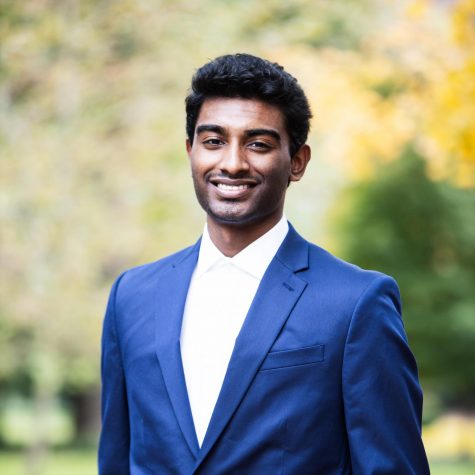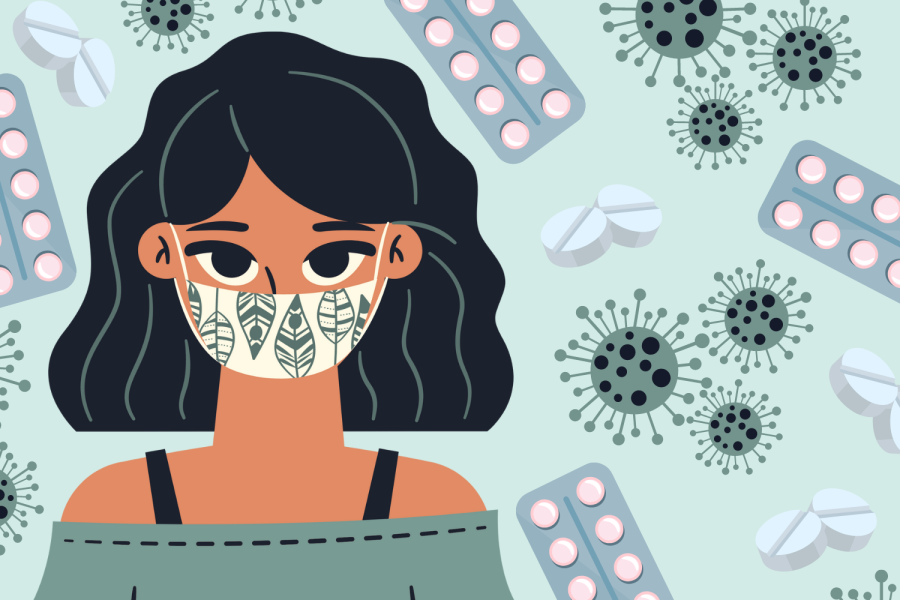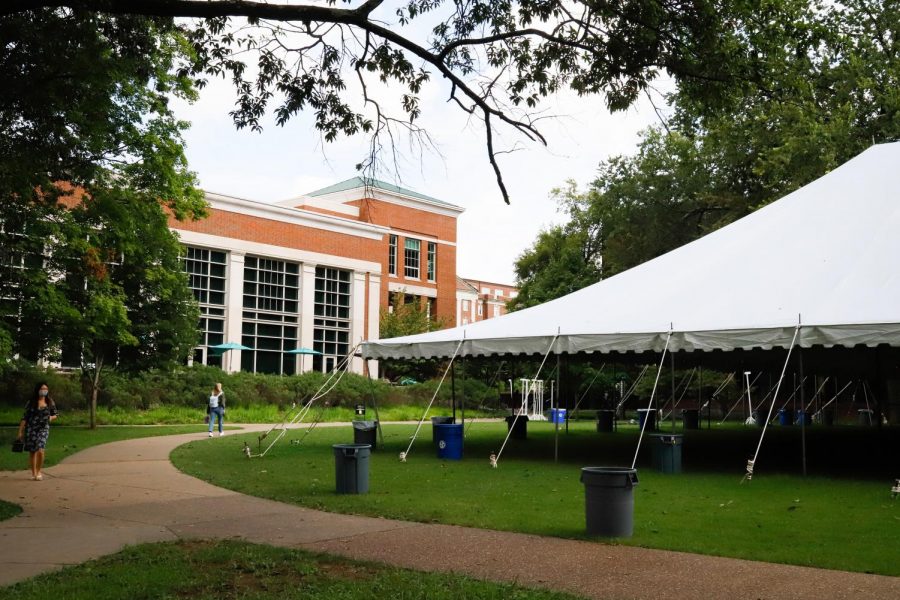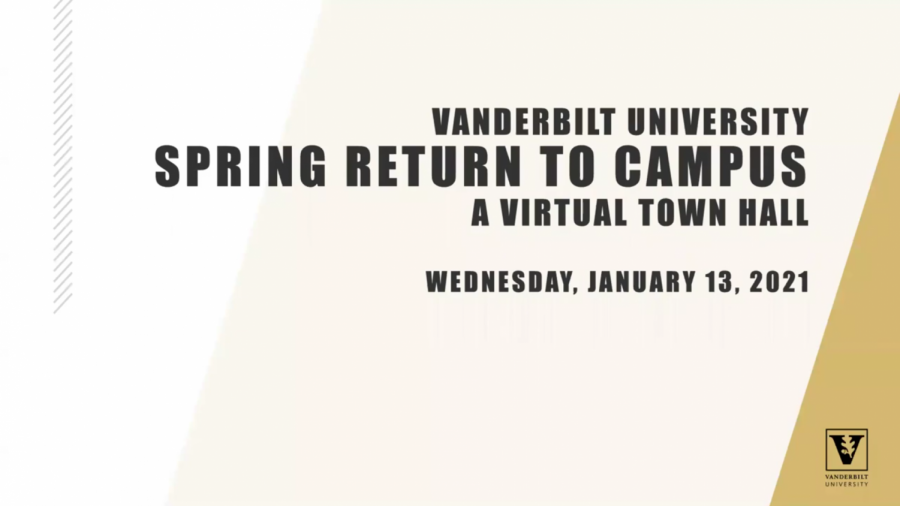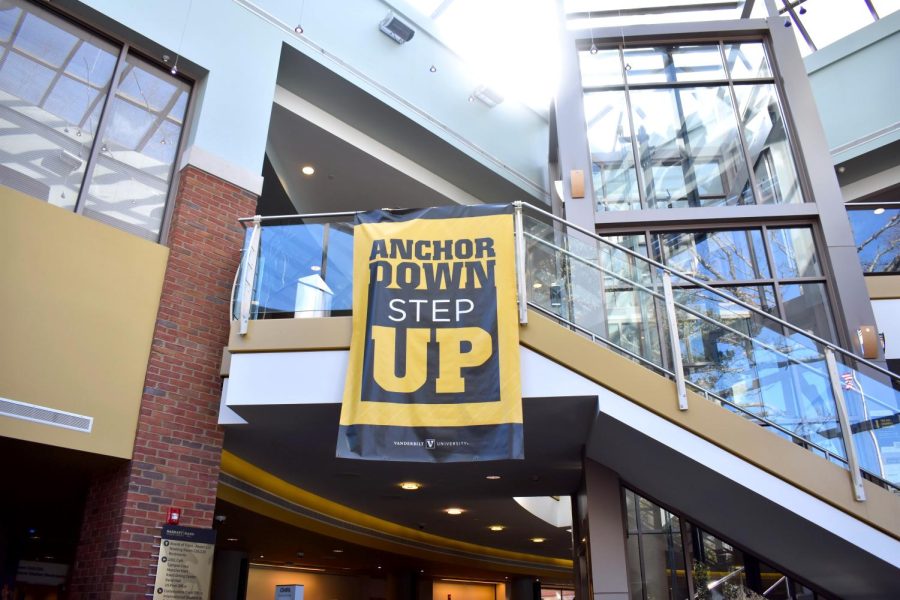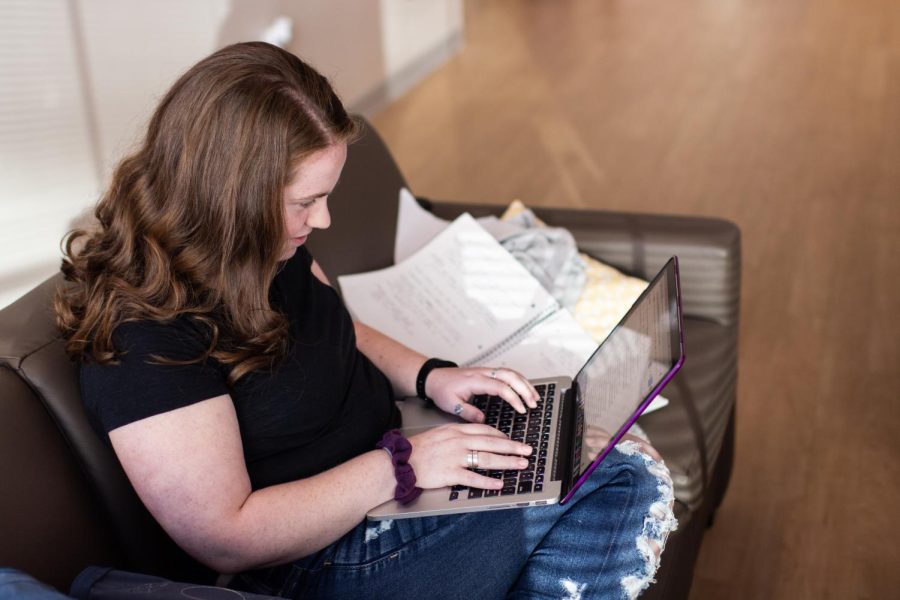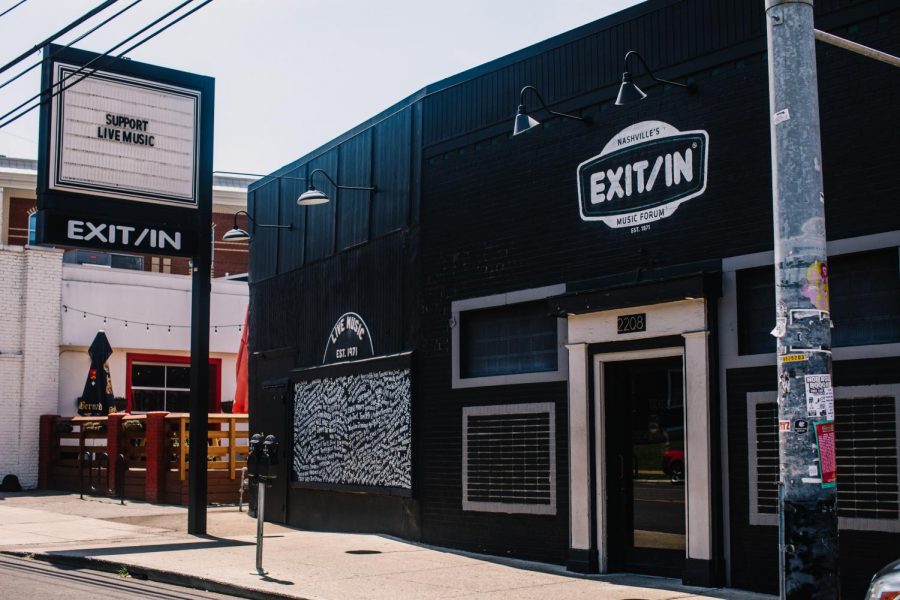Professor of Pathology, Microbiology and Immunology Mark Denison spoke to the Hustler March 1 about the spread of the coronavirus. Denison is currently the Director of the Division of Infectious Diseases at Vanderbilt University School of Medicine. He completed his residency in 1983 and his fellowship in 1986 at the University of Iowa and his doctorate in 1980 at the University of Kansas.
Denison’s lab uses both biochemical and genetic approaches to study the model coronavirus and mouse hepatitis virus (MHV), to understand the replication, cell biology and protein functions of coronaviruses.
COVID-19, belonging to the coronavirus family, originated in Wuhan, China Dec. 1 and has expanded to over 90,000 cases globally. Countries with the most cases are, respectively, China, South Korea, Italy, Iran and Japan. The United States currently has 135 cases and nine deaths, with the first case reported in Washington State. In its risk assessment, the CDC called the immediate health risk to the American public from the virus “low,” while the World Health Organization (WHO) said the global risk of the coronavirus outbreak “very high.” There is currently no publicly available vaccine for the coronavirus.
Vanderbilt Hustler: How closely is your research related to the new COVID strand?
Mark Denison: Our focus has been on antivirals. We had predicted that a virus like this would emerge for the last 15 years, and the last ten or so, we’ve been looking for strategies that could be used to treat any coronavirus that might come out of animals into humans.
It’s one of the drugs being used in China right now: Remdesvir, a drug created by Gilead Sciences in California. But all laboratory testing demonstrating that drug was useful was done in our laboratory. The reason that drug is being tested in humans right now is because of work we did. We started in my lab in 2014, and then our collaborators at Chapel Hill, University of North Carolina, have been testing it in animals. So the published studies on that drug all came out of our lab.
We’re working on another compound that’s not in humans yet that is also very effective and should be given out. So we’re hopeful that they’ll be out of our lab and within six months or so, there’ll be two drugs that are potentially effective against this virus in humans.
So, the drug from Gilead—that one is already out is what you’re saying?
It’s being tested. It’s in trials and in China, and it’s been approved for a trial in the United States.
How long before a general populace would get the drug?
That’s definitely unpredictable because we don’t know how it’s going to work, what particular states or states with the disease that it treats and how to gear it up. It’s being used now in a trial, and I think it’s also being used in compassionate use in some cases. But in general, in terms of general availability, it may take some time, but this is actually the fastest a potential antiviral has ever been available for a new human virus infection.
Have there been any compassionate use cases where the drug has been able to cure it?
Of course, the answer to that question is you don’t know. You’re probably familiar with the difference between a trial and an anecdote.
The first patient in Washington received this drug, and he got better. That could be true, true and related, or it can be true, true and unrelated. Most of the cases with this virus in middle-aged or otherwise healthy people are going to lead to recovery. So I think what we can say is he got better while he was taking this medicine, and we can say for sure that it didn’t cause him any toxicity or bad side effects. That’s important in terms of thinking of beginning to have a drug that might be available that he did get better, all is his biochemical and laboratory studies improved and he didn’t have any side effects and toxicity associated with the drug.
The SARS vaccine was pretty far in development, but it never ended up being used. Do you think if we had finished development, this vaccine would’ve been finished already?
No, because this is a new virus.
Peter Hotez, who’s been an important scientist in this issue, felt that there was a vaccine that would have been useful. I think that that would have needed to have been tested anyway. This is a very different virus.
It is in the same cluster; I call it cousins to SARS, but it’s not the same. There’s a couple of things you have to test. One is you have to test whether antibodies against, developed against the vaccine against SARS would work against the new virus in culture and will they stop the virus from growing. Second, you have to be sure in animals, the vaccine would function. Third, you have to be able to show that they’re actually not going to make it worse. And this is really important because there are some human viruses like a respiratory syncytial virus in children where very early vaccines that were the wrong form of the viral proteins actually resulted in antibodies that made children sicker and die more frequently from the disease. So, it’s not magic. It’s not science fiction. It’s not a one hour TV show. There’s a lot of careful things you have to do.
SARS-1 back in 2003, 2004 was going back and forth between the humans and the animals’ strains. The vaccines made against the very earliest forms of SARS were not effective even within three to four months later against the virus as it had evolved in humans. Finally, there’s this problem that is not clear that it’s going to happen, but I’d call it ADE, antibody-dependent enhancement. That happens with the Dengue virus, the mosquito-borne disease, and there are multiple strains. Antibodies against Dengue-1, if you get Dengue-2, you actually get worse, because those antibodies don’t completely get rid of it.
And those are closely related viruses, but the antibody to one of them makes the other one worse. So you, you can’t make assumptions about how a vaccine is going to work after tested.
When the vaccine finally comes out, do you think it will be expensive?
Let’s be really clear. What’s going on here is a pandemic; I call it a pandemic because it’s all around the world. It doesn’t imply severity, but it’s a virus that’s rapidly spreading, never been in humans before and continues to show emergence in the United States and other countries.
This is a global health crisis that is having to be addressed at the highest levels of government globally. It’s causing profound economic disruption, changes in the stock market, disruption of travel, and multiple industries are being dramatically impacted.
If there is a vaccine that is available, it will be ramped up, and this is not something that will go through a typical, slow commercial rollout. This is something that would be necessary for a critical, public health emergency. So I think the issues of price are not the issues. The issues are going to be capacity and availability. How do you identify who needs the vaccine the most?
There are 73 reported cases in the U.S. right now. How many more do you think exist right now?
I don’t know how many more there are. I think for there to be spread of the virus that’s not noticed, there have to be more cases than you initially think, or the virus has to be able to survive in the environment, or there’s reintroduction of the virus. I think there’s not reintroduction. That suggests that if you’re still having outbreaks at different places around the world and country, that people are traveling and are contracting, but aren’t getting profoundly ill and are able to spread the virus.
So are there more cases? [indiscernible] Yes. Does that imply that people are intentionally under-reporting? Absolutely not. Remember, this is all about the virus. The virus doesn’t care about our political systems, socioeconomic systems or state boundaries.
It merits the virus that’s here tomorrow was the one that was successful today. It has to be replicating inside of the human, inside the human cell somewhere at all times or it will go away within a matter of weeks. So, that suggests that there have to be people who are infected, transmitting the virus, or you won’t continue to see new cases.
So it makes you want to stop and make you want to change fields and become a virologist?

Maybe. This is so interesting.
I gotta tell you, this is going to be studied for people by their Ph.Ds for the next 20 years. They’ll talk to you about the economic impact. In some cases, if this fades away, people will say was this an overreaction. Was this the coronavirus panic of 2020? If it doesn’t, it worsens, then people will say: what have we learned about the fragility of social and economic systems in the face of a new zoonotic virus emerging out of animals and humans.
Do you think Vanderbilt will ever have to deal with a coronavirus case on campus?
I think we’re likely to because people travel, and we don’t have constraints on what people can do. I think it’s likely here as it is anywhere else in the country and just as unlikely. But the virus hasn’t declared itself yet, it doesn’t have a certain exact number of days, incubation period. It doesn’t have a certain exact time when it transmits during infection.
It’s not revealed itself yet. So, is it possible that someone could get back to the campus? Yes. That’s why we prepare for it, I think, because there are those risks.
A lot of places, including Vanderbilt, have a 14-day quarantine policy. If we don’t know how many days that the incubation period for this specific strand is, then what’s a good balance between being cautious verses reckless?
Whenever you see words, numbers like 3, 10, 14 or 21, they’re not biological numbers because viruses don’t count and they don’t pay attention to these kinds of things.
Typically what those are supposed to represent, it’s sort of the longest that you would go with an increased risk. I think that that is reasonable based on what we know about SARS. That’s reasonable based on what we knew about some other respiratory viruses.
But this is a new virus and there’s the fact that cases are arising later with outbreaks where people haven’t had any risk or contact for much longer periods of time suggested there may be a tail that’s longer. Fourteen days may still be reasonable in terms of the overall population.
The goal of isolation like that is to prevent enough transmissions so that the virus cannot propagate and expand. So 14 days may be a general number that’s good enough to prevent the expansion and allow for that to die down in its own accord. It may not be an accurate number at all in terms of that there may be some individuals that could have, would have a much shorter incubation like three days, or might have a longer one, like 21 days.
So I think you can’t function on the 99.99 percentile. If you do that, then you’re really exceeding what you need to do. I think 14 has been considered reasonable based on what we knew about SARS and in general what seems to have been working in China. I think that’s probably where that’s predicated on right now.
Do you think that it’d be wise for universities like Vanderbilt to shut down study abroad?
I think it’s a very, very moving target, very difficult decisions for people to make for universities and everything.
I think we are in new uncharted territories, and I think what we have to do and give each other a lot of latitude and understanding that we’re trying to deal with a brand new kind of human problem here. We may act in ways that in retrospect seem like they were aggressive, but that at the moment probably are prudent.
I think they’ll look at each country individually, and sometimes decisions may be made by others if travel was limited or stopped. Remember there’s the issue of you get over there, but then you have to be able to get back. And if you get back—isolation. There are lots of decisions that have to be made. The university has to take a lot of things into account.
There was a report by the Tennessean that the VUMC has been cutting back use of masks and stocking up on masks. Do you think that there are enough resources in terms of masks at VUMC to properly deal with any outbreak?
There’s not been stocking and storing up. There’s been thoughtful conservation. The issue is not when masks are needed, you have to ask the question of when do you need masks for other things? This isn’t about this virus as much as it is about people who may be in the hospital with other illnesses and other infections where masks are required or any of the immunocompromised patients, people with unknown respiratory infections that might be transmittable like tuberculosis.
This isn’t about hoarding; this is about careful, thoughtful, proven approach to being sure the other resources you need to care for all your patients come in and to avoid unnecessary use of masks when they don’t do any good. Even with this virus, everybody wearing a mask apparently hasn’t been successful at preventing its ability to transmit.
The prices for the N-95 masks on Amazon were high because people are freaking out about coronavirus. I think that’s something interesting to study later.
People have always done profiteering, and it is shameful and should never be allowed.
Supply and demand is one thing. Exploiting an emergency is a different thing altogether. As a physician, as an infectious disease person, as a scientist, I think that’s appalling and should never be tolerated. In my opinion, that’s like war profiteering.
At the end of this outbreak, when we’ve hopefully gotten it all cured, how big of an impact do you think this will leave on the world’s preparation for future events?
The world’s a big place, and remember it’s not one giant thing. I would like to think human beings are capable of long term planning. I worry in our country for many reasons that we have decided to have short term thinking.
I’ve been working on this virus family for 30 years. We’ve been predicting an event like this for at least 20 years in all of our papers and grant applications. We’ve been preparing for it by trying to develop antivirals that could be used against the future virus, not just the ones from the past.
So at the level of the National Institute of Health and other organizations, there’s at least some thoughtfulness going forward. However, memory is very short term. I would guess that until this episode that many people your age would never have heard of SARS.
Although at the time that occurred back in 2003, 2004, it was the first event like this with a brand new human virus that had come out of the animals of unknown virus group. At the time, it affected up to 10 percent of the direct domestic products in China in 2003, 2004. This was a profound event and it had a devastating effect on Toronto, its economy and its psyche, because there was a serious outbreak there that was very, very scary with lots of mortality in health care workers.
So what have we done since then? We’ve shifted money. We shifted from coronaviruses (SARS) to Zika. We shifted from Zika to Ebola. We shifted from the West Nile virus to something else instead of having long-range thinking that these are problems that we need to invest in long-term. I think of it as an infrastructure investment. It’s the same as bridges. Try to ignore them. We hope we’re not going to be the car driving over them when they collapse if we don’t take care of them. I think of it in the same way. I think we need to have strategies that say that these events are going to recur, and they’re unpredictable.
I believe COVID-19, at least since the 1918 flu I’d argue, is of [the scale of] an infectious disease epidemic that is likely to have the most profound effect globally on the economy and on our sense of safety and security in the face of a changing world.
Robert Gottschalk contributed to the reporting of this article. The article has been edited for brevity and clarity.



